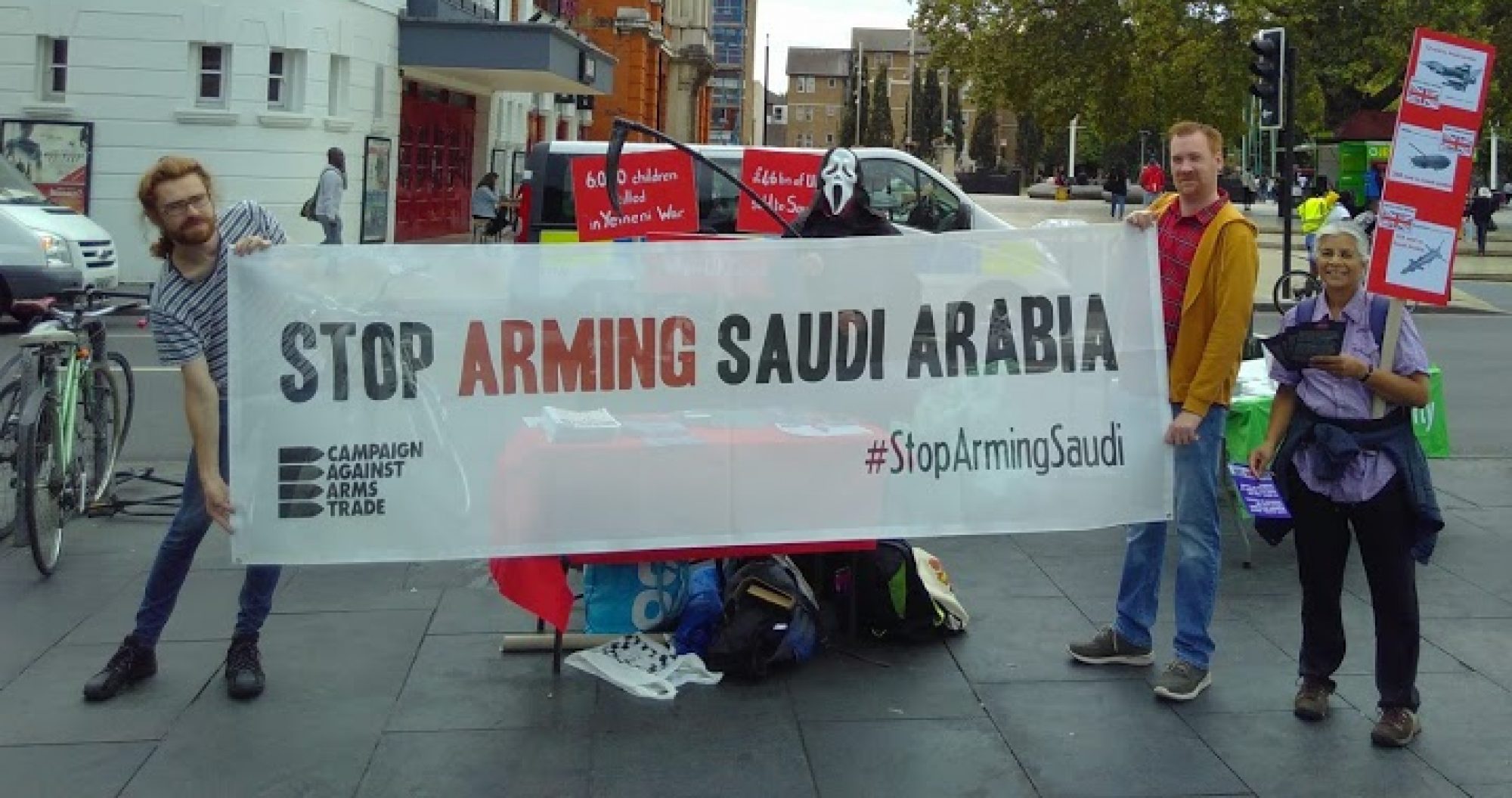Launch of report by Prof. Anna Stavrianakis, “Missing in Action: UK arms export controls in war and armed conflict”
This report is part of a project led by the World Peace Foundation, and funded by the Carnegie Corporation of New York, “Defense Industries, Foreign Policy, and Armed Conflict”.
The UK’s commitments to conflict prevention and the protection of human rights and international humanitarian law in its arms export controls are now over twenty years old. Despite these obligations, the outbreak of war or conflict has had little or no restraining effect on UK arms exports – even where violations of human rights and humanitarian law are documented. In conflicts as varied as the Sri Lankan civil war, the occupations of Kashmir and Palestine, and the war in Yemen, UK arms export controls have not restricted transfers in any meaningful way.
Rather than being proactively engaged to prevent harm, export controls are mobilised by the government to manage controversy once criticism emerges from civil society and Parliament. Risk assessments fail to take past patterns into account or develop preventive orientations to likely future scenarios. Further, the control regime is routinely deployed as a means of deflecting calls for restraint. Overall, export controls serve a legitimising function in an attempt to mollify parliamentary opposition, NGO and media criticism and domestic public opinion, and to signal good international citizenship in the face of ongoing exports to conflict zones in violation of international humanitarian and human rights law. Many credible policy recommendations to improve export controls have been made over the years. They have rarely been put into action. The key issue is the absence of political will to address the economic, political and social costs of UK policy on arms sales.
This event explores the patterns of UK arms exports in the last two decades, with particular reference to arms exports to India and Pakistan in relation to Kashmir; to the Sri Lankan armed forces in the civil war; to Israel, used in the occupation of Palestine; and to the Saudi-led coalition in the war in Yemen. Speakers from CAAT, Mwatana for Human Rights and Palestine Solidarity Campaign will reflect on the role of the arms trade in sustaining these wars, and on avenues for progressive change.
Speakers
Anna Stavrianakis, the report’s author, is a Professor of International Relations at the University of Sussex, UK. She researches and teaches on the international arms trade, UK arms export policy and arms transfer control, as well as global militarism and (in)security.
Ali Jameel is a former Researcher at Mwatana for Human Rights, and involved in investigations and reporting on weapon remnants and ICC communication. Currently he holds the role of Accountability and Redress Officer.
Ryvka Barnard is the Deputy Director of the Palestine Solidarity Campaign.
Katie Fallon is Parliamentary Coordinator of Campaign Against Arms Trade (CAAT). She coordinates CAAT’s advocacy highlighting the devastating impact of the arms trade, including of UK exports to the Saudi-led Coalition in the war in Yemen.
Moderator: Sam Perlo-Freeman, Research Coordinator, Campaign Against Arms Trade.
Register for the event here.
NB: You will receive a confirmation email with a link to a page to join the Zoom meeting. The button to join the Zoom meeting will be enabled half an hour before the event starts. You will NOT receive the Zoom link by email.

